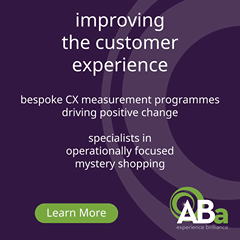Employee Mental Health Toolkit For Retail HR
With UK retail employees’ mental health amongst the lowest of any sector, businesses urgently need to reassess their approach to the wellbeing of their workforce. Research by the Retail Trust found that 91% of retail managers have seen an increase in staff facing mental health issues but they are struggling to support these colleagues effectively. Retail HR has a vital role to play in improving the employee experience by championing mental health in the workplace. Our toolkit provides some key steps that will help you do just this.
Tackling Mental Health In Retail
Following the last few years of uncertainty, retail workers have been hit financially, emotionally and physically. Supporting mental health in the workplace isn’t just a corporate responsibility or health and safety legal duty for the retail sector. Positive mental wellbeing underpins employee engagement which in turn leads to great customer experiences. It not only benefits your colleagues, but also your bottom-line. It improves productivity, staff retention and, ultimately, business growth.
Driving a culture where mental health is prioritised can’t be achieved as an add-on. It needs to be a fundamental part of how the business is run. HR is key to developing an open and supportive culture that addresses mental health issues. From recruitment to performance development, HR can embed support strategies in the policies, processes and culture of your organisation.
Retail Mental Health Toolkit – Essential Step By Step Guide
We’ve pulled together some positive actions HR can take to build a culture that puts the mental health and happiness of workers first.
Make a clear commitment to mental health
A positive culture that empowers management and collaboration based on openness and respect can only flourish with support from leadership. Whether it’s a Chief Executive or director, you need senior levels of your organisation to show a clear commitment that mental health matters to them. One way of driving forward this commitment is to appoint a senior-level employee as a Mental Health Champion who can develop the commitment into actions.
Create workplace mental health policies
Your policies and procedures provide employees with guidance on everything that’s needed for successful day-to-day operations. That’s why mental health should be reflected in all relevant policies, such as absence and sickness, health and safety, working hours, performance management, recruitment, diversity and inclusion, bullying and harassment, and whistle blowing. All policies should provide practical help to support managers and give them the confidence to have conversations about mental health and wellbeing with their staff.
Create a positive workplace culture
If you’re going to improve employee wellbeing, you must tackle the culture of silence on mental health. Make everyone aware that they can speak about their mental health. Ensure there’s a clear structure within your organisation for sharing sensitive information on mental health. Rather than reacting when a situation reaches a crisis point, having open conversations enables managers to put the right support strategies in place before a situation escalates.
Remember, leaders, play a vital role in fostering an open and supportive culture so make sure they are demonstrating your company values.
Offer support & training
From induction to informal lunch and learns, training employees is critical to ensuring every employee has the competence and confidence to bring your mental health policies to life. Managers are likely to be the first point of contact when an employee is experiencing difficulties. Make sure they are equipped with an understanding of mental health and the skills needed to offer support. Intervening early on to offer support and make appropriate workplace adjustments can enable the employees to get the help they need and continue with their work.
Identify workplace factors making mental health worse and fix them
Work overload, job insecurity, poor career progression, poor quality of work and ineffective communication all have a negative impact on employee mental health. Supporting workplace wellbeing is about tackling these issues by applying good management practices. For example, actively engaging with employees and ensuring staff are able to use their skills and perform their work to the best of their abilities. Supportive supervision, as well as great interactions with customers, can have a positive impact on employee wellbeing.
Help employees recover by supporting them throughout
Sometimes employees will need to take time off work due to mental health issues. If retail workers are struggling, employers should provide the support they need throughout their recovery. This includes prior to taking time off, while they’re off sick and on their return to work. Of course, the approach will be informed by the nature of the problem and the amount of time needed to recover. In all cases, maintain close contact, but do not put pressure on employees to return before they are ready. Adopting a supportive approach will help you to retain valued employees, as well as meet legal obligations.
Make work-life adjustments to employees who struggle with their mental health
Everyone needs and deserves a healthy work-life balance. Reasonable hours, agreed deadlines, offline time and flexible working can all reduce stress, boost wellbeing and create healthier and happier workers. If an employee is having issues, review your flexible working policy to determine whether working hours can be adjusted to allow greater flexibility for them.
Final Thoughts
With 36% of retail workers having been diagnosed with a mental health condition, tackling employee wellbeing is a key challenge for the retail industry. Making a commitment to champion mental health is important, but it’s following up with effective tools, techniques and strategies that will have the real impact. These need to be embedded in policies, processes and culture throughout your organisation. They should be reinforced consistently using a mix of approaches and channels to engage people on the shop floor, in the warehouse or at the office. By creating a workplace culture in which all employees feel they can be open and honest about their mental health, you can ensure that staff are supported before they reach a point of crisis.
Find out more about how retail HR mental health strategies can be implemented in your organisation at our annual HR Summit. Register today!














